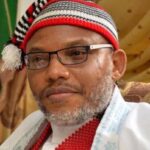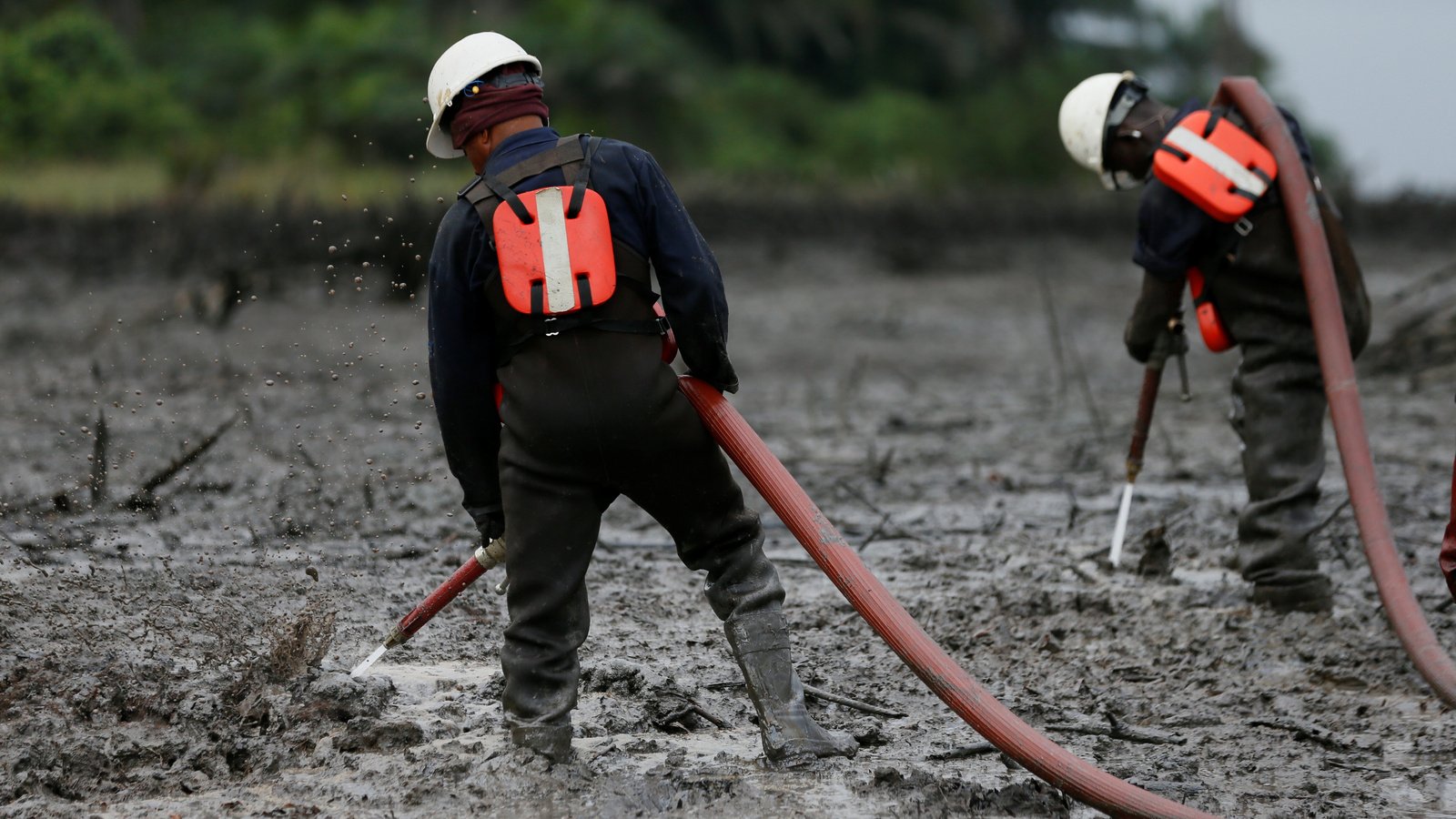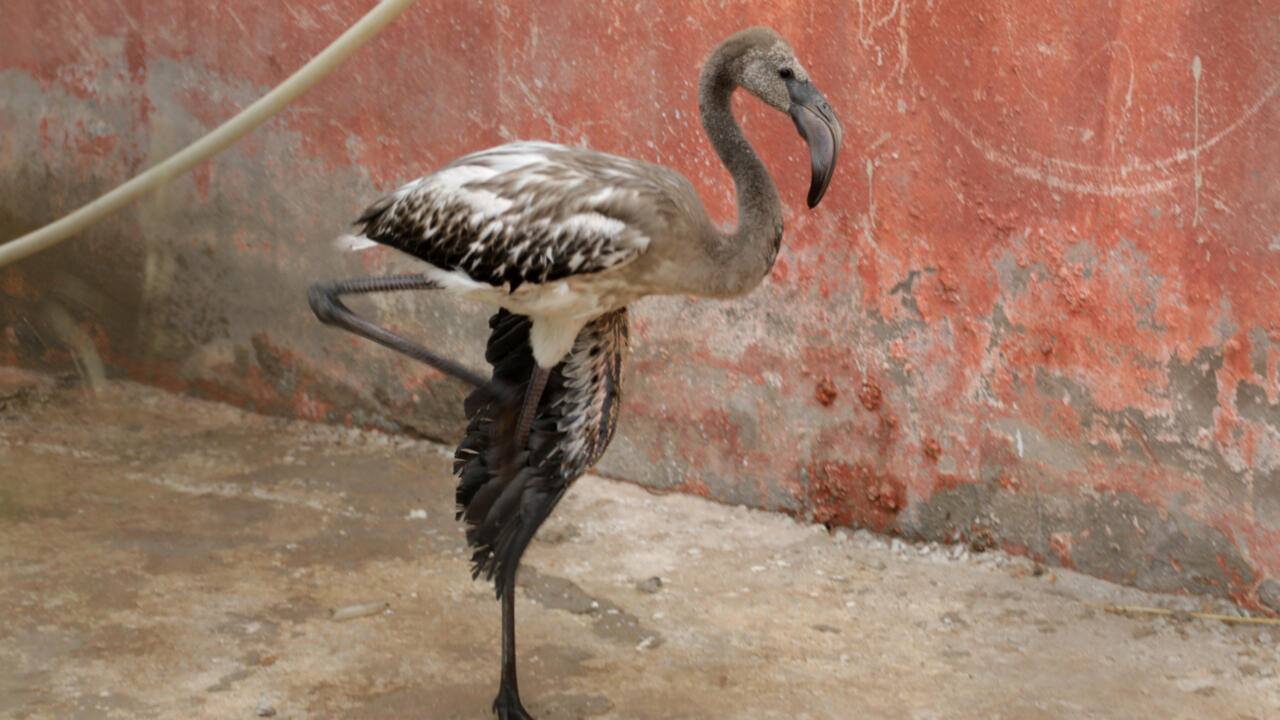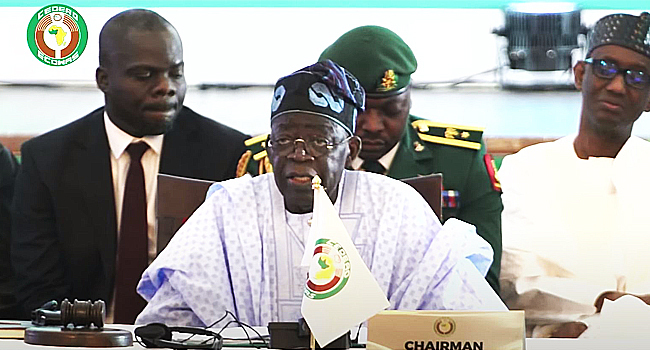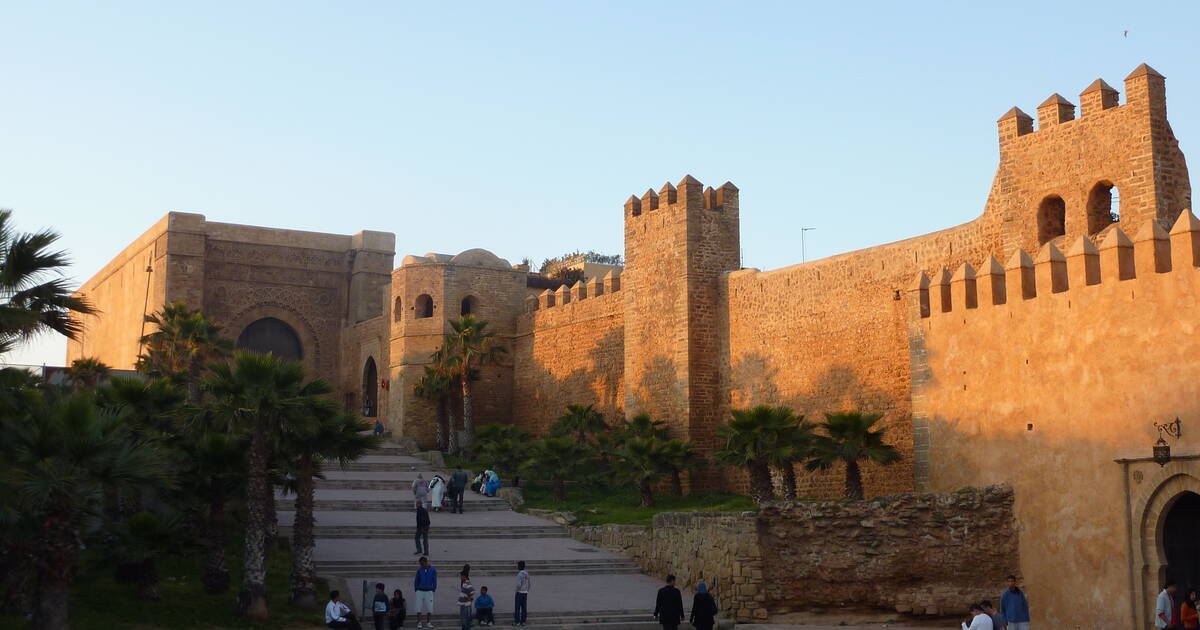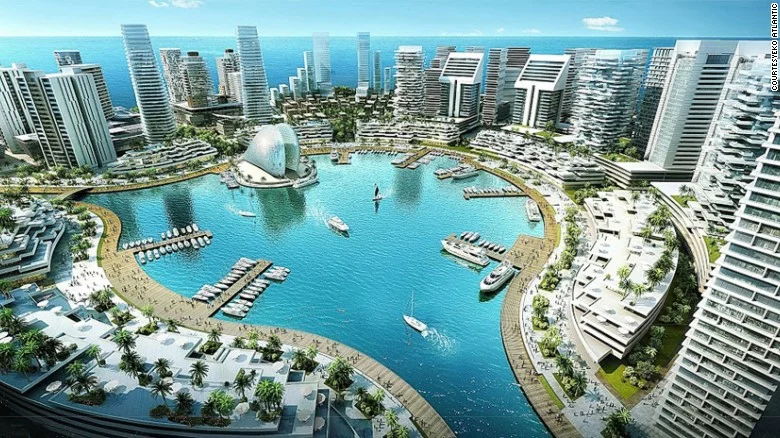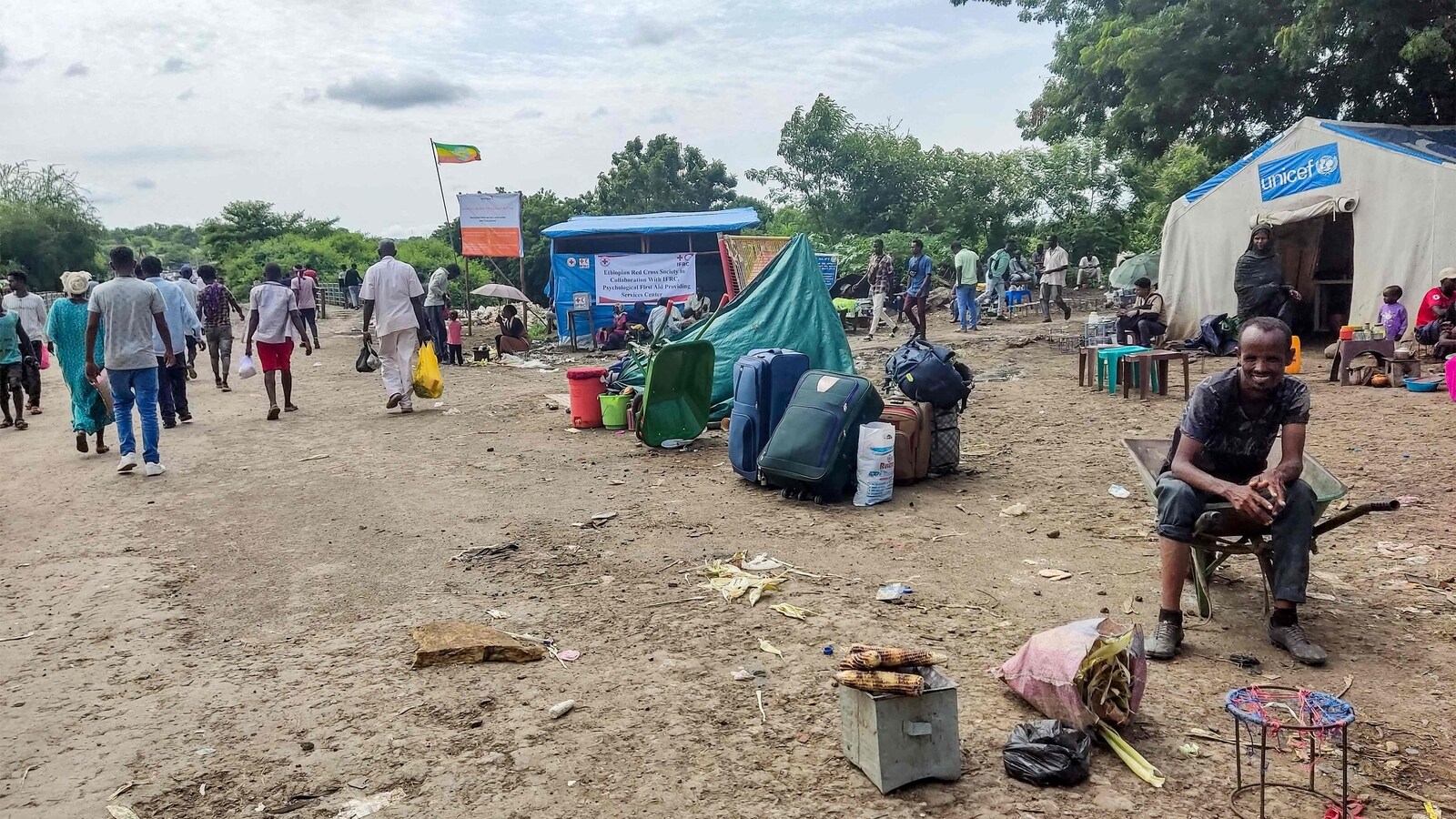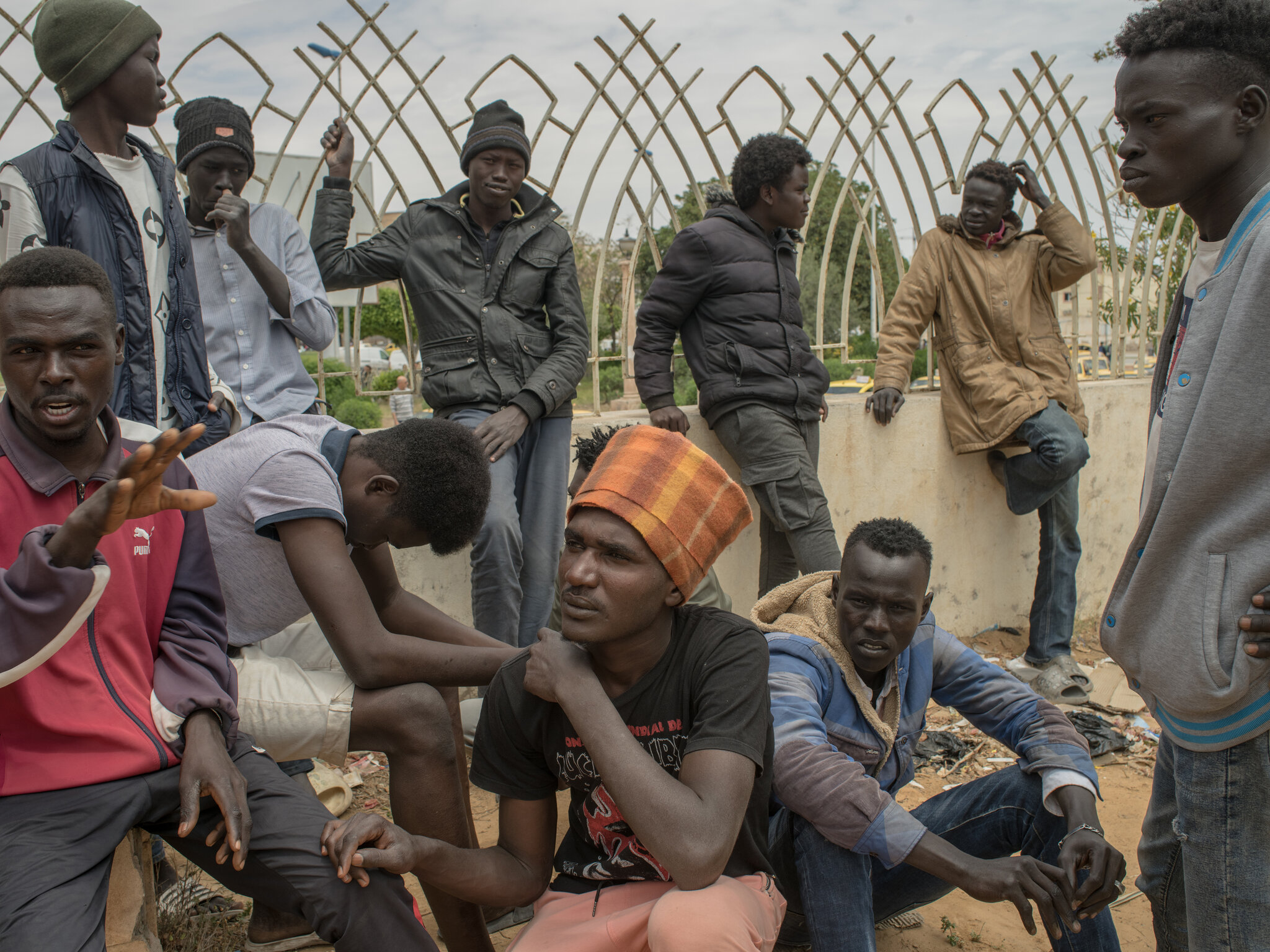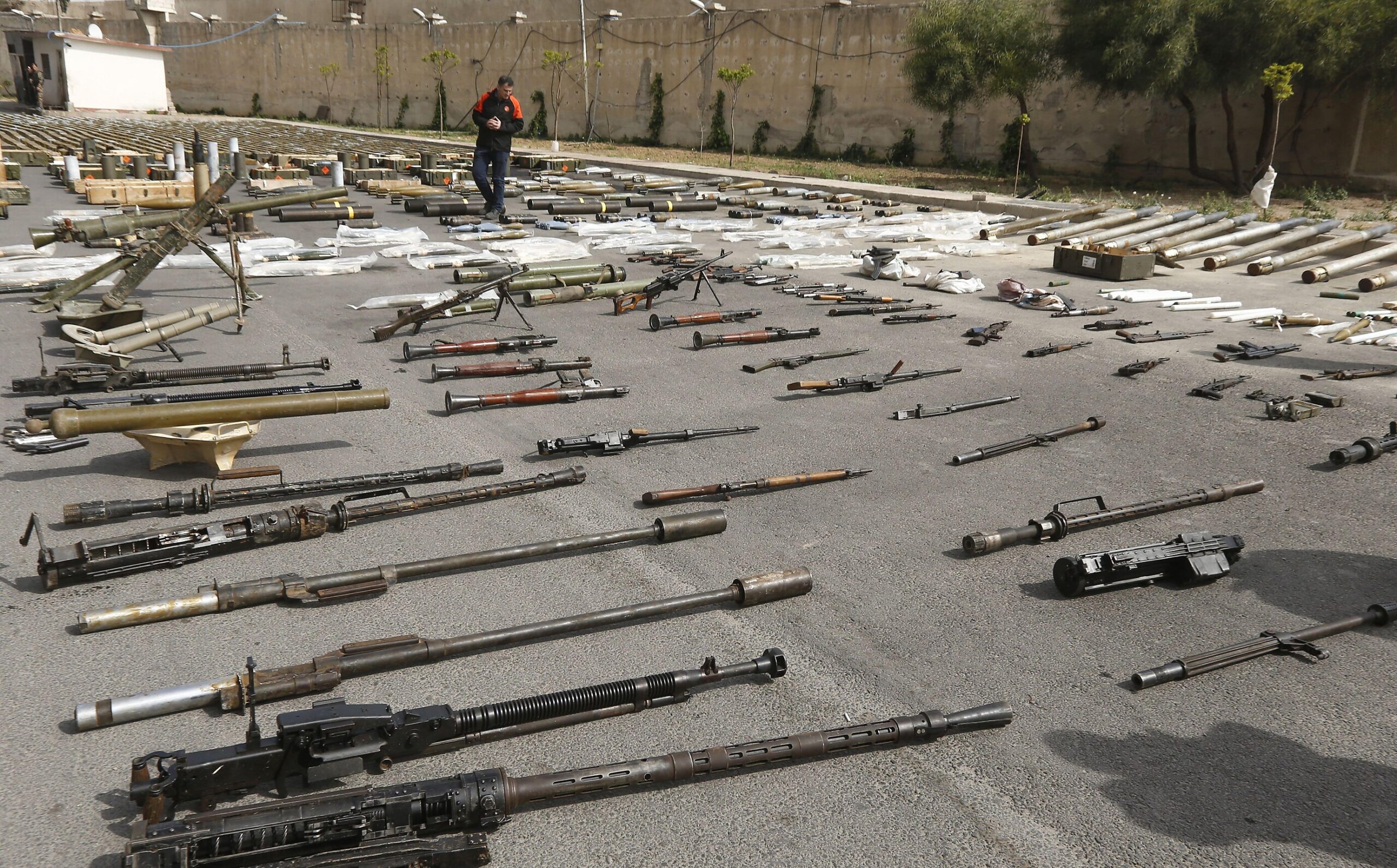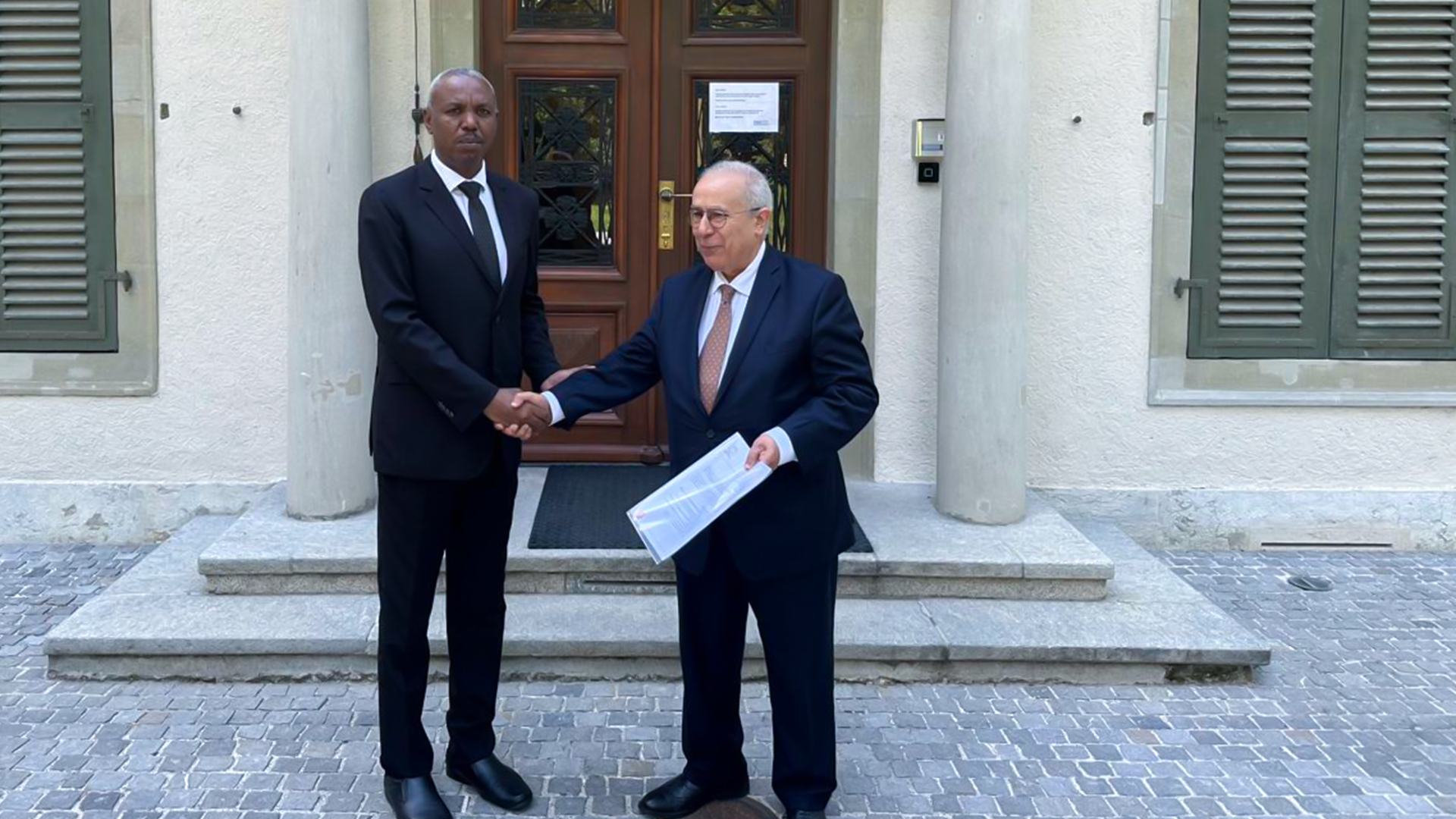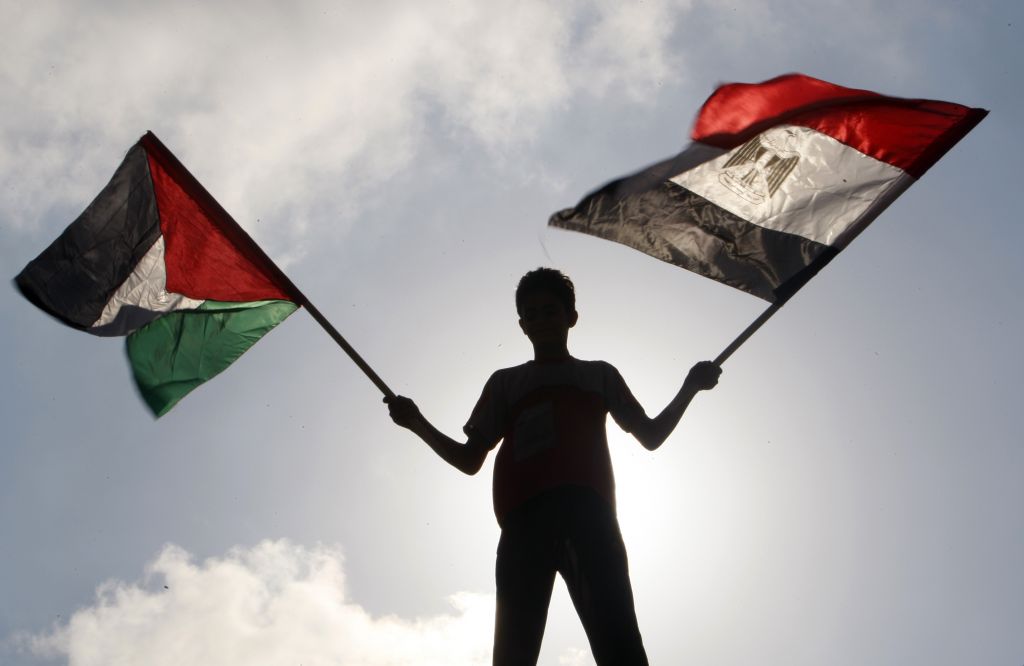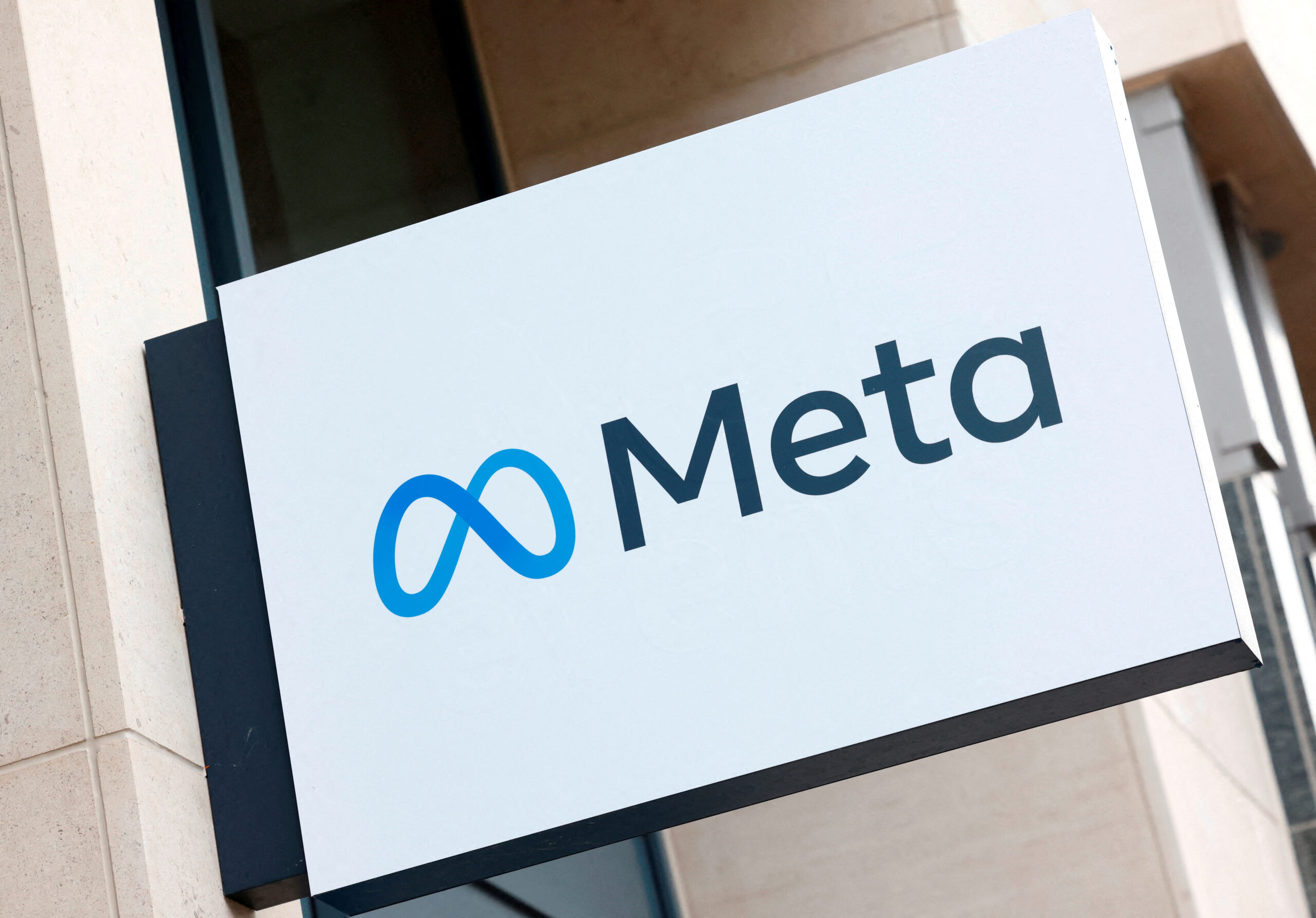Tanzania president fires two senior ministers in cabinet shake-up
Tanzania’s President Samia Suluhu Hassan has fired two senior ministers in a mini-cabinet reshuffle ahead of the 2025 elections.
Nigeria looks into refinery woes, dirty diesel
Nigeria probes fuel shortages, dirty fuel imports, and a clash between Dangote Refinery and regulators.
Nigerian doctor draws massive ‘unity in diversity’ artwork
Combining his passions for art and his homeland, Nigerian doctor Fola David is vying for a Guinness World Record.
African leaders meet to advance economy and unity
The 6th African Union Mid-Year Coordination Meeting in Ghana focused on accelerating economic integration and improving funding mechanisms.
Uganda opposition faces crackdown ahead of protests
Ugandan security forces have sealed off the headquarters of the main opposition party, the National Unity Platform, ahead of planned anti-government protests.
Algerian volunteers save baby flamingos from desperate situation
Volunteers in Algeria rescued hundreds of flamingo chicks from a drying salt lake caused by years of drought and high temperatures.
Mali’s ‘king of kora’ Toumani Diabate dies at 58
Mali’s celebrated “king of kora,” Toumani Diabate, passed away on Friday at the age of 58 following a brief illness, according to an announcement from his family on social media. Diabate, a renowned master of the kora—a traditional West African stringed instrument—died at a private clinic in Bamako, the capital of Mali. Born in 1965 into a family of griots, Diabate was deeply rooted in Mali’s rich cultural heritage, serving as a guardian of the nation’s oral histories and traditions. Throughout his career, Diabate was celebrated for his extraordinary skill and innovative approach to the kora. His ability to seamlessly blend traditional Malian music with contemporary influences earned him acclaim both in Africa and internationally. The news of his passing has led to a wave of tributes from across the West African music scene. Fellow musicians and admirers have praised Diabate for his profound impact on the music world. His contributions were recognized for bridging the gap between ancestral traditions and modern music, making a lasting imprint on Mali’s cultural landscape.
ECOWAS allocated $14M for humanitarian aid
The Economic Community of West African States (ECOWAS) has reported allocating $14 million over one year to support humanitarian efforts in the region and combat terrorism. According to a statement by Ajuri Ngelale, Special Advisor to Nigerian President Bola Ahmed Tinubu, Tinubu attended the “African Union 6th Mid-Year Coordination Meeting” held in Accra, Ghana’s capital. President Tinubu, who is also the ECOWAS Chair, mentioned during the meeting that ECOWAS has allocated $14 million to support humanitarian efforts and counterterrorism in the region. He also noted that ECOWAS is exploring other financing options for its $2.6 billion Contingency Force. Tinubu highlighted that ECOWAS faces various challenges such as terrorism, food insecurity, and climate change, and mentioned that the organization will continue dialogue with Burkina Faso, Mali, and Niger, who have decided to leave ECOWAS, and will convene an “Extraordinary Special Summit” on the future of the Community. Tinubu did not announce the summit date but indicated that leaders would discuss ongoing negotiations with Niger, Mali, and Burkina Faso regarding their decision to leave ECOWAS. Burkina Faso, Mali, and Niger, who decided to leave ECOWAS and formed the Alliance of Sahel States (AES), held their first summit in Niamey, Niger’s capital, on July 6th. During the summit, they signed a joint declaration to establish the “Confederation of Sahel States,” comprising the three countries, and elected Malian President Assimi Goita as the AES Chair for a one-year term.
UNESCO to evaluate heritage conservation in Morocco’s capital
Morocco’s capital, Rabat, is one of 124 World Heritage sites to be assessed for the state of its conservation at the UNESCO committee’s annual meeting in India. With architecture dating back to 1184, the city is one of the most ancient in the world, and its numerous monuments depict the many different periods of Moroccan history. Mosques dating back nearly a thousand years blend into the new urban town built under the French Protectorate in the early 1900s. “Morocco, as one of the most ancient countries in the world, by virtue of its strategic location, has been home to a group of civilisations from the prehistoric period to the present day,” said Mohammed El Krombi, curator of historical monuments at the Culture Ministry in Rabat. He said having World Heritage status is both an honour and a responsibility. “It requires us to take care of these historical monuments because UNESCO, together with the Ministry of Culture and local partners, is trying to support this heritage and make it known,” he said. “When people visit Morocco, they tend to go to just Fez or Marrakesh. The royal vision now is that Rabat is not only the administrative capital but also the cultural capital, the city of lights. These are the things that will help attract tourists.” Tourism plays a pivotal role in enhancing Rabat’s historical heritage, and restoration projects use traditional methods and materials to preserve the original design. With its quiet alleyways, high blue and white walls and ornate doorways, the Kasbah of the Udayas if a firm favourite with visitors. The real birthplace of the city, its origins date back to the 12th century. “The Kasbah of the Udayas is the city of Mahdia. It is the first nucleus of the Almohad city of Rabat al-Fath. It is the historical city that extends on both banks and not only on the left bank,” said Rabat historian and archaeologist, Mohamed Es-semmar. Chakir Cheraibi, a Moroccan tourist from Canada, said the area has always been a major attration. “Even for us, it makes us discover Rabat, the children too. We teach them about the history of Morocco through these places and these monuments,” he said. What started out as a humble military outpost nearly 1,000 years ago to defend the area, has been expanded over time into a citadel. Today, this mostly residential neighbourhood, is home to several important historical monuments, including the Andalusian Gardens, the Bab Udaya gate, and the Old Mosque. UNESCO’s World Heritage Committee holds its 46th session from 21 to 31 July in New Delhi.
African Union addresses integration issues at Ghana conference
The African Union convened in Ghana on Sunday to address issues related to African integration and to establish a unified stance before engaging with the G20 and UN. Mauritania’s President and current African Union Chair, Mohamed Cheikh Ghazouani, urged for the acceleration of the African integration process. He stressed the importance of expediting economic integration to support the continent and fulfill the aspirations of African citizens. Discussions during the meeting centered on financing mechanisms for African Union projects, particularly the funding of the organization itself, which heavily relies on contributions from non-African partners. African Union Commission Chairperson, Moussa Faki Mahamat, highlighted the necessity for member countries to present a united front in upcoming engagements with international partners. He emphasized the importance of speaking with one voice at major global forums, including the G20, where the African Union now holds membership. With ongoing regional instability in West Africa, ECOWAS nations Mali, Niger, and Burkina Faso risk losing their memberships due to military coups that ousted democratically elected leaders in these countries. These nations have been under threat from terrorist organizations affiliated with al-Qaeda and the Islamic State for years.
African cities embrace smart technology
Several African cities are making significant strides in improving urban living standards
Uganda’s president warns protest organizers of consequences
Museveni, who has been in power since 1986, faces criticism for his authoritarian rule but is also praised by supporters for maintaining stability in Uganda
Congo summons Uganda over alleged support for M23 rebels
Ugandan charge d’affaires denies accusations, asserts Kampala’s commitment to regional stability cooperation
Key developments from Sudan Peace Talks in Geneva
Initially, General al-Burhan’s forces boycotted the talks, leading to only the RSF delegation attending the start of the Geneva meetings
Rwanda sets ambitious economic goals
Rwanda has announced an ambitious plan to become an upper-middle-income country by 2035
Ivory Coast deports 164 Burkinabe refugees amid concerns
The Burkinabe government has expressed regret over the deportation of 164 of its citizens, who recently sought refuge in Ivory Coast. This comes amid ongoing efforts to accommodate the 60,000 Burkinabe who have fled instability in their homeland since 2021. Many of these refugees are hosted by local families, while others are housed in government-established reception centers. On July 13, 2024, a group of 173 Burkinabe, predominantly women, children, and about fifty men, arrived in Ouangolodougou, Ivory Coast. Seven members of the group reported to local authorities to register their livestock. However, three days later, 164 of the refugees were deported back to Burkina Faso without any official explanation. Local sources suggest the deportations were due to the refugees’ failure to register with authorities and concerns over potential migratory influxes and security infiltrations. Jean Emmanuel Ouédraogo, spokesperson for the Burkinabe government, condemned the deportations as a violation of humanitarian principles during a Council of Ministers meeting on Wednesday. In response, Burkina Faso’s Minister of Humanitarian Action visited Niangoloko to provide support and supplies to the affected individuals. The Ivorian government insists that the deportation was an isolated incident and reaffirmed its ongoing commitment to assisting asylum seekers, a practice it has maintained for nearly three years.
Protests erupt in Tunisia, Morocco against Israeli attacks on Gaza
Demonstrations against Israel’s attacks on the Gaza Strip took place Friday in Tunisia and Morocco, drawing thousands of protesters. In the Tunisian capital of Tunis, protesters gathered on Habib Bourguiba Avenue for a Solidarity with Palestine march. Demonstrators carrying Palestinian and Tunisian flags, chanted slogans such as “Freedom for Palestine” and “The hypocritical world has set Gaza and Palestine on fire.” Human rights activist Said Buacle, who participated, told Anadolu that protesters have been holding support demonstrations for Gaza for 37 weeks and plan to continue. Similar demonstrations were held in cities across Morocco, including Rabat, Fez, Meknes, Tangier, Kenitra, Nador, Ahfir, Taroudant and Agadir. Thousands took part to demand that Israel stop its attacks on Gaza and allow humanitarian aid into the enclave. Israel, flouting a UN Security Council resolution demanding an immediate cease-fire, has faced international condemnation amid its continued brutal offensive on Gaza since an Oct. 7 attack by the Palestinian resistance group, Hamas. More than 38,800 Palestinians have since been killed, mostly women and children, and nearly 89,400 injured, according to local health authorities. Over nine months into the Israeli onslaught, vast tracts of Gaza lie in ruins amid a crippling blockade of food, clean water and medicine.
110 irregular migrants caught in western Libya
Security Forces Capture 110 Irregular Migrants in Libya’s Western Hamada el-Hamra Desert Security forces in Libya have apprehended 110 irregular migrants from various African countries in the Hamada el-Hamra desert region in the west, according to a statement from the Border Security Unit under the Ministry of Interior. The statement reported that patrol teams from the Border Security Unit detected a group of irregular migrants scattered across the terrain in the Hamada el-Hamra desert region. It was noted that the 110 irregular migrants, originating from several African countries, underwent health screenings and were subsequently handed over to relevant authorities for legal proceedings. Libyan authorities had previously collaborated with the International Organization for Migration (IOM) to deport 174 irregular migrants from Nigeria on June 25. Libya is recognized as a departure point for irregular migrants attempting to reach Europe via illegal routes across the Mediterranean Sea.
Namibia denies visa extension to Ugandan king
Namibia denied a visa extension, citing threats to diplomatic staff. Discover the reasons behind the dispute.
South African court blocks arms sales to Myanmar
The decision applies to Myanmar and potentially other countries accused of coups, war crimes, or genocide.
RSF says talks with UN in Switzerland’s Geneva successfully concludes
The Geneva talks, held from July 11 to July 19, initially faced a setback when General al-Burhan boycotted the event.
DR Congo province suspends mining activities
The decision aims to restore order and improve control over mineral production.
Egypt, Kuwait back ICJ on Palestinian self-determination
The ICJ demands Israel evacuate settlements and end its occupation of Palestinian territories.
Nigeria fines Meta $220 million for data violations
A $220 million fine follows accusations of data exploitation and privacy violations on Facebook and WhatsApp.
Algeria detains Hirak activists, citing terrorism law
Eight Algerian pro-democracy activists from the Hirak movement are detained, raising concerns about the government’s crackdown on dissent.
Kenya warns Ford Foundation over deadly anti-gov’t protests
East African country’s government questions funding to groups linked to violent demonstrations that have left at least 50 dead
Kenyan court lifts protest ban amid rising death toll
The protests, ignited by economic hardships and political grievances, have gripped the nation for weeks.





